
From the parliament to life, the Dien Hong spirit is spreading strongly, arousing the will to innovate in each cadre, each delegate, each citizen. It is not only the movement of the state apparatus, but also the journey of building trust, where law, intelligence and consensus converge for the people, for the country, for the sustainable development future of Vietnam.

The National Assembly passed a Resolution of the National Assembly amending and supplementing a number of articles of the 2013 Constitution at the 9th Session.

When the Constitution is amended and a series of new laws are issued, the most important thing is how to make those documents truly live - live in the lives of the people, businesses, and the public apparatus. That is the mindset of "institutions must be linked to actions" that the 15th National Assembly is persistently implementing.
Immediately after the 9th Session, the National Assembly's committees - especially the Law and Judiciary Committee and the Economic and Financial Committee - simultaneously implemented a plan to monitor the implementation of the Constitution and amended laws.
More than 3,000 voters' opinions were compiled, nearly 600 petitions were sent to the Government and ministries and branches - demonstrating the spirit of the National Assembly taking action, for the people and for the country.
Institutional improvement is no longer limited to "making laws for the sake of it", but has shifted to making laws to create development momentum. Policies on decentralization, delegation of authority, and control of power are designed in a specific direction, with clear enforcement tools and monitoring mechanisms.
The Law on Organization of Local Government (amended), the Law on State Budget (amended) and laws related to investment, land, resources... are all reviewed synchronously to avoid "overlapping laws" and "blocking regulations".
Dr. Nguyen Si Dung - former Deputy Head of the National Assembly Office emphasized: " The 15th National Assembly is demonstrating maturity in legislative thinking: not only controlling power but also liberating power, so that the government can be more dynamic and serve the people better ."
That thinking has created the foundation for a series of concrete actions - from parliament to life.

Since the session, the atmosphere of institutional reform has spread strongly in many localities. Practical highlights - from Ho Chi Minh City, Quang Ninh, to Ninh Binh (new) - show that the National Assembly is not only "making laws", but is working with executive agencies and localities to put laws into practice.
In Ho Chi Minh City, the "two-level urban government" model officially came into operation after the amended Law was passed. The city was given more initiative in planning, public investment, apparatus arrangement, personnel, and budget revenue and expenditure.
As a result, the time to approve investment projects has been reduced from 18 months to 8 months, thanks to shortened appraisal and decentralization of decisions. The city's Department of Planning and Investment reported that in the third quarter of 2025 alone, total registered FDI capital increased by 12.6%, partly due to faster and more transparent procedures.

In Quang Ninh, the "regional one-stop shop" model has become a symbol of regional institutional reform. In just 72 hours, businesses can complete inter-provincial investment procedures between Quang Ninh - Hai Phong - Hai Duong - Bac Giang. This model has been assessed by the National Assembly as "one of the most effective local institutional initiatives in 2025".
Meanwhile, the new Ninh Binh - formed from the merger of Ninh Binh, Nam Dinh, and Ha Nam provinces - is proving the real value of the resolution to "rearrange the country". The two-level apparatus operates compactly, 100% of provincial administrative procedures are processed online. According to the report of the Ministry of Home Affairs, after only 6 months, the budget saved more than 320 billion VND/year, while the capacity to serve people and businesses increased significantly.
In Da Nang, the implementation of the "digital government" model has been accelerated thanks to the Digital Data Law recently passed by the National Assembly. 92% of district-level administrative records are processed online.
An official of Hoa Thuan ward shared: " Previously, to get a permit to build a house, people had to go back and forth 3-4 times; now they only need to submit their application through the Public Service Portal and receive the results at home ." Small changes like that are a great testament to the vitality of the system.

The National Assembly Chairman surveyed the features of public administrative services at the Ninh Kieu Ward Administrative Center, Can Tho City, June 30, 2025.

In a heated discussion session, National Assembly delegate Nguyen Quang Huan (Ho Chi Minh City Delegation) frankly assessed: " The 15th National Assembly is not only making laws, but is also making history ."
That seemingly metaphorical statement is accurate to every word: This National Assembly has brought the concept of "institution" from the legal level to become a national competitive advantage - where the law is no longer a barrier, but a lever, a tool to pave the way for development.

According to Mr. Huan, if in the past, the executive and legislative branches often operated separately, now the National Assembly is accompanying the Government in reform and supervision, ensuring that laws are not only correct but also viable, not only reasonable but also in accordance with the people's wishes.
" Decentralization must be substantial, and empowerment must go hand in hand with accountability - that is the only way to both liberate and control power ," said Mr. Nguyen Quang Huan. These views received high consensus in the parliament - as a shift in thinking from "management" to "creation".
Mr. Huan further emphasized that this opinion complements the vision that experts such as Dr. Nguyen Si Dung or Associate Professor Dr. Bui Hoai Son have mentioned many times: good governance is the highest form of a strong institution.

What makes the 15th National Assembly different is not only the volume of laws passed, but also the spirit of accompanying the Government in implementation. For the first time, the National Assembly organized "post-resolution" thematic monitoring delegations to monitor the effectiveness of decentralization, mergers, and streamlining of staff, as well as the actual impact on the people.
Monitoring reports show that the rate of people's satisfaction with public services (SIPAS 2025) reaches 85.4%, an increase of 5.2 percentage points compared to 2024; 80% of administrative procedures are performed online; the administrative reform index (PAR INDEX) of ministries and branches increases steadily. Those numbers reflect a reality: institutions are being transformed into productivity, into development drivers.
Not only in the administrative field, the National Assembly also creates a solid legal corridor for innovation, green economic development and digital transformation. Laws such as the Digital Data Law, Renewable Energy Law, Science and Technology Law (amended)... will all be issued in 2025, paving the way for a knowledge-based economy.
Along with that, the National Assembly has increased coordination with the Government in explaining policies - a new point demonstrating the "accompanying, not making excuses" mindset. Instead of dry discussions, many meetings have become forums for giving advice, where delegates, experts, and managers discuss solutions.
The Committee on Science, Technology and Environment oversees the implementation of the Digital Data Law, the Committee on Culture and Society monitors post-merger social security policies - all demonstrate the transformation of a modern, dynamic and creative National Assembly.
This companionship also extends to the private and international sectors. The World Bank (WB) report in September 2025 assessed Vietnam as "one of the three countries with the fastest institutional improvement rate in Southeast Asia". The United Nations Development Programme (UNDP) also recorded Vietnam's "Governance Effectiveness" (GOV) score reaching its highest level in the past 10 years.

From "decisions" to "actions", from the parliament to the scene, the 15th National Assembly has demonstrated the administrative and supervisory capacity of a modern democratic institution.
That journey continues with new laws, new monitoring programs, and above all, public trust—the most valuable resource for any reform.
The Dien Hong spirit, from today's parliament, is being continued through actions, results, beliefs and aspirations for sustainable development of the country.

Vtcnews.vn
Source: https://vtcnews.vn/quoc-hoi-dong-hanh-cung-kien-tao-phat-trien-tu-the-che-den-hanh-dong-ar984764.html







![[Photo] Opening of the 14th Conference of the 13th Party Central Committee](https://vphoto.vietnam.vn/thumb/1200x675/vietnam/resource/IMAGE/2025/11/05/1762310995216_a5-bnd-5742-5255-jpg.webp)
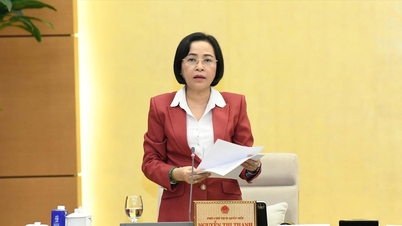



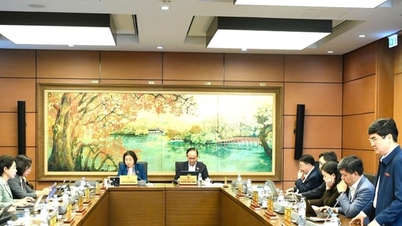

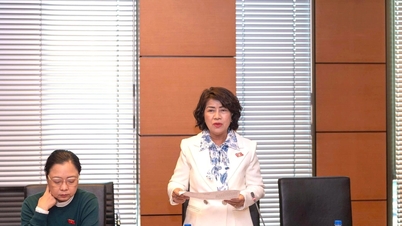
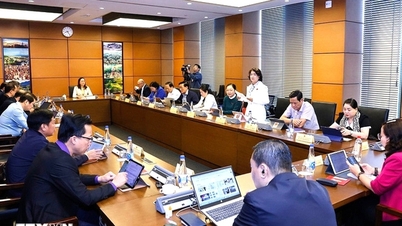










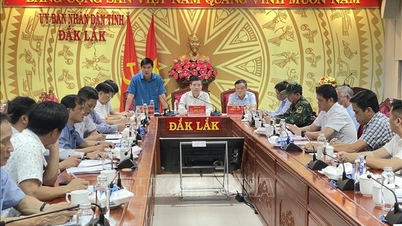










![[Photo] Panorama of the Patriotic Emulation Congress of Nhan Dan Newspaper for the period 2025-2030](https://vphoto.vietnam.vn/thumb/1200x675/vietnam/resource/IMAGE/2025/11/04/1762252775462_ndo_br_dhthiduayeuncbaond-6125-jpg.webp)









































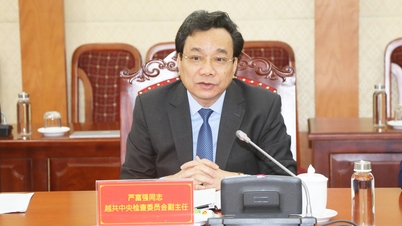









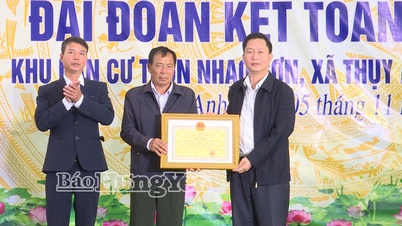















Comment (0)